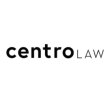What are the most recent trends in wealth management?
Wealth management is an essential part of life planning in many ways. How you preserve and grow your wealth impacts your lifestyle, living environment, and the people you are close to. It is no surprise that wealth owners seek the best specialists, solutions, and outstanding services.

Wealth management is an essential part of life planning in many ways. How you preserve and grow your wealth impacts your lifestyle, living environment, and the people you are close to. It is no surprise that wealth owners seek the best specialists, solutions, and outstanding services.
In recent years, there has been an upheaval in wealth management. Technological innovation is creating opportunities that were previously unavailable. Fintechs are now part of our daily lives and have also arrived in the institutional sector. While individual wealth management was the preserve of large fortunes just a few years ago, the entry barriers are now much lower. Also, wealth managers and private banks are no longer the only contact points for wealth owners, who now have a broader choice of service providers to implement individual wealth management solutions.
Below, we highlight some of the current trends in wealth management and the opportunities they present for wealth owners.
Specialization of service providers
A trend toward specialization can be observed in the market since independent asset managers are increasingly serving niches. The associated domain expertise positively impacts performance and creates a decisive advantage over generalists. This means that it is no longer the breadth of the offering that is decisive but rather the depth. Specialists benefit from economies of scale and transparent processes and can often offer even better conditions. This, in turn, helps wealth owners, who can compare offers better and make higher demands on services and quality.
Building ecosystems
With specialization comes the situation for wealth owners to work with multiple providers simultaneously. Thanks to technological developments, they can integrate them into a unified framework. Custody and different niches can thus be covered by various providers, with specific tools enabling collaboration.
Therefore, wealth owners no longer need a single point of contact, as was initially the case with a private bank. Current wealth management tools are cloud-based and offer interfaces for all service providers in a secure environment. This allows asset classes to be individually managed and specialist know-how to be leveraged.
Independent asset managers offer the further advantage of aligning interests with their clients and significantly reducing conflicts of interest. Wealth managers and private banks still provide excellent solutions that can be integrated into the individual setup.
Enhancing control and transparency
With the above wealth management tools, wealth owners also gain a higher level of transparency and control. Hidden costs and fees have characterized the industry for a long time. In individual ecosystems, costs become more transparent, although some cost models remain challenging to understand. But again, wealth owners are in an improved situation that allows them to define and implement the appropriate cost model.
In addition, wealth owners retain an overview and control of all activities and services implemented in the ecosystem. The data obtained is, in turn, used for decision-making and strategic alignment. Furthermore, management of risks and costs is ensured.
Implementing holistic solutions
By moving away from standard solutions, it is now possible to build comprehensive wealth management frameworks that address the individual requirements of wealth owners. As before, a coherent and tailored investment strategy is crucial. Wealth owners should consult specialists to identify their needs and design strategies in line with risk ability and tolerance.
Another advantage is better access to alternative investments. New technology-driven solutions also enable portfolios to be diversified with private equity and venture capital. Likewise, crypto investments can be integrated into portfolios. Blockchain applications further allow the conversion of illiquid assets into liquidity. Tokenization provides access to new asset classes, and fractional ownership reduces the investment barriers.
Conclusion
These are exciting times for wealth owners as we experience a substantial transformation of the wealth management industry. There are many available options, and comparing services and providers is worthwhile. The competition that comes with these developments ultimately benefits clients. Technology plays a crucial role in this new environment, providing access to more investment opportunities and individualized solutions.
Of course, specialists and trusted advisors are still needed to make the right decisions. However, the range of independent service providers supporting wealth owners and avoiding conflicts of interest is growing. Private banks still offer excellent services and can be integrated into individual ecosystems to achieve outstanding results.
About the Creator
Centro Law
An exhaustive and precise overview of your wealth is crucial for successful estate planning. All assets, from financial assets to luxury items, should be well listed to outline all sources of wealth and income.






Comments
There are no comments for this story
Be the first to respond and start the conversation.